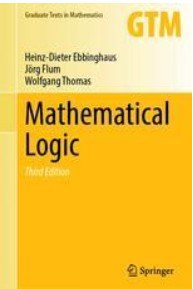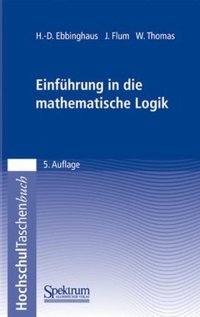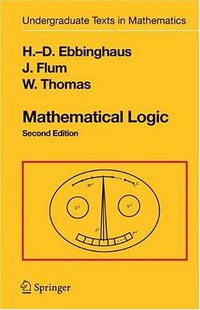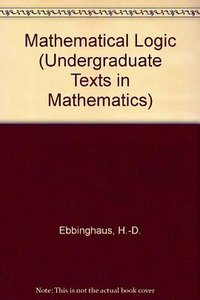Mathematical Logic (3/e)
Douban
Heinz-Dieter Ebbinghaus / Jörg Flum …
overview
Explores additional important decidability results in this thoroughly updated new edition
Introduces mathematical logic by analyzing foundational questions on proofs and provability in mathematics
Highlights the capabilities and limitations of algorithms and proof methods both in mathematics and computer science
Examines advanced topics, such as linking logic with computability and automata theory, as well as the unique role first-order logic plays in logical systems
This textbook introduces first-order logic and its role in the foundations of mathematics by examining fundamental questions. What is a mathematical proof? How can mathematical proofs be justified? Are there limitations to provability? To what extent can machines carry out mathematical proofs? In answering these questions, this textbook explores the capabilities and limitations of algorithms and proof methods in mathematics and computer science.
The chapters are carefully organized, featuring complete proofs and numerous examples throughout. Beginning with motivating examples, the book goes on to present the syntax and semantics of first-order logic. After providing a sequent calculus for this logic, a Henkin-type proof of the completeness theorem is given. These introductory chapters prepare the reader for the advanced topics that follow, such as Gödel's Incompleteness Theorems, Trakhtenbrot's undecidability theorem, Lindström's theorems on the maximality of first-order logic, and results linking logic with automata theory. This new edition features many modernizations, as well as two additional important results: The decidability of Presburger arithmetic, and the decidability of the weak monadic theory of the successor function.
Mathematical Logic is ideal for students beginning their studies in logic and the foundations of mathematics. Although the primary audience for this textbook will be graduate students or advanced undergraduates in mathematics or computer science, in fact the book has few formal prerequisites. It demands of the reader only mathematical maturity and experience with basic abstract structures, such as those encountered in discrete mathematics or algebra.



